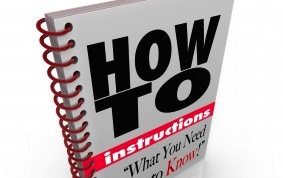
The ideal treatment for common mental health problems in those with chronic physical illness would have to be reliable, easy to deliver, inexpensive and accessible by a group of people whose physical impairment may affect treatment adherence. NICE guidelines (CG90 Depression; the treatment and management of depression in adults) recommend self-help interventions (SHIs) based on principles of Cognitive Behavioural Therapy (CBT) for mild to moderate depression. If effective, this treatment has the potential to tick all of the boxes above for those with mild to moderate mental health problems and chronic physical illnesses.
SHIs can be delivered in a number of ways, including via manuals, patient information sheets, or via the internet and provided with or without professional support. A recent systematic review published in Clinical Psychology Review evaluated self-help via written information for people with depression, anxiety and physical illness (Matcham et al, 2014).
Methods
The authors used an appropriate search strategy to identify 29 papers for the systematic review. Twenty five studies were suitable for meta-analysis. Inclusion criteria were:
- SHIs used written material only and had less than 60 mins contact time with a non-mental health professional
- Participants had 1 or more physical illness (defined as a physical health problem with a biological basis)
- Randomised controlled trials (RCTs)
- Depression, anxiety and/or distress measured as an outcome variable (not at baseline)
The primary outcome of interest was assessed and reported depression, anxiety or distress. Using sub-group analysis, the authors were able to unpick more specific information about what type of intervention showed benefit for which patient group. They also examined the secondary outcomes of; acceptability (assessed by drop-out rates from the intervention), changes in physical function, quality of life (QoL), knowledge about conditions and cognitions (such as self-efficacy, helplessness and coping strategies).

This study examined written information with little contact time, which was a low intensity, accessible and relatively cheap intervention
Results
4,739 patients were included in the systematic review covering wide a range of physical conditions including cancer, stroke and heart disease.
Primary analysis
Primary outcomes were assessed with standardised mean differences (SMDs) and 95% confidence intervals (CIs). Primary analysis showed that SHIs significantly reduced depression (SMD -0.13, 95% CI; -0.25 to -0.02), but not anxiety (-0.10 95% CI; -0.24 to 0.05) or distress (-0.14 95% CI; -0.40 to 0.12)
In the subgroup analysis, the strongest evidence in favour of SHIs for depression was when the intervention contained stress management material (SMD= -0.21, 95% CI; -0.38 to -0.04).
SHIs with information content alone or disease self-management tended to be ineffective for depression, anxiety and distress.
There was also evidence of benefit for:
- Patients with heart disease
- When outcomes were measured between 5-12 weeks
- When some professional guidance was provided
- And when the mean age was 40-50 years
Secondary analysis
SHIs had equivocal impact on the outcomes. Improvements in:
- Function were seen in 6/12 studies
- QoL were seen in 5/11 studies
- Knowledge was seen in 6/10 studies
- Cognitions were seen in 4/8 studies
- Fewer patients withdrew from the control groups than the intervention (OR = 1.36, 95% CI 1.01 to 1.82, p=0.04), but this difference disappeared when studies with a high risk of bias were excluded.

The strongest evidence in favour of SHIs for depression was when the intervention contained stress management
Limitations
The heterogeneity of the studies and the sensitivity analyses has made interpretation complicated. There is a risk that over analysis has increased the chances of rejecting a true finding. The use of subgroup analysis has been useful though, as it provided closer examination of methodological aspects that might affect the results. However, even though the studies recorded baseline psychological measures, subgroup analysis to examine whether baseline severity of depression or anxiety affected outcomes was not conducted.
Conclusions
The authors said that:
Provision of written self-help materials may help ameliorate distress in some circumstances.
They also recommend that SHIs are of most value in primary care where there are high levels of comorbidity with milder mental illness and long-waiting lists for CBT. One of the major strengths of this paper is that by looking at written information with little contact time, it examined a low intensity, accessible and relatively cheap intervention, which would fit in well in primary care.
The elements of the SHIs that showed the most promise were:
- Stress management using relaxation exercises
- Goal setting
- Cognitive restructuring
These techniques are also used in CBT, which is a useful treatment for common mental health problems in the physically ill. However, many people in this population find the prospect of psychological work daunting, too emotionally challenging and might favour less intense strategies. SHIs could be a starting point for these individuals in addressing their mental health problems and may give them the confidence to embark on more in-depth therapy.

Provision of written self-help materials may help ameliorate distress in some circumstances
Links
Matcham F, Rayner L, Hutton J, Monk A, Steel C, Hotopf M. Self-help interventions for symptoms of depression, anxiety and psychological distress in patients with physical illnesses: A systematic review and meta-analysis (PDF). Clinical Psychology Review, Volume 34, Issue 2, March 2014, Pages 141-157, ISSN 0272-7358
Depression: the treatment and management of depression in adults (PDF). National Institute for Health and Clinical Excellence, Clinical Guideline 90, Oct 2009.


MT “@Mental_Elf: Is self-help effective for people with comorbid physical & mental health problems? http://t.co/qRfgpWj9I7” #selfmgt
@Mental_Elf everyone is different,what works for one wont work for another. Cbt ect. did nothing for me :/
Off to a good start. Are self-help interventions effective for people with comorbid physical and mental health… http://t.co/HNM6QikEya
Are self-help interventions effective for people with comorbid physical and mental health problems? http://t.co/4vBLbMjhQc via @sharethis
@Mental_Elf Evidence that knowledge is power – patient education can be highly effective and empowering but often not considered
Read @ag2460’s blog on self-help treatment for depression, anxiety & distress in patients w/ physical illness http://t.co/lKa7WLIokn
Mental Elf: Off to a good start. Are self-help interventions effective for people with comorbid physical and… http://t.co/2wurh0rGuf
Self-help interventions for depression work best w/ some kind of stress management element, says systematic review http://t.co/lKa7WLIokn
We’ve blogged about new research from @FaithMatcham and @MatthewHotopf today: http://t.co/lKa7WLIokn Pls tell us what you think #selfmgt
RT @Mental_Elf: Self-help treatment w/ info content alone is ineffective for depression, anxiety & distress, says meta-analysis http://t.co…
New systematic review & meta-analysis on self-help for #depression & #anxiety with comorbid physical illness http://t.co/lKa7WLIokn
Thank you for your excellent summary of our paper, “Self-help interventions for symptoms of depression, anxiety and psychological distress in patients with physical illnesses: A systematic review and meta-analysis”.
We hope your readers find it interesting; for us, the question of how best to detect and manage co-morbid mental and physical health problems is fascinating, and the findings of this paper will hopefully pave the way for more high-quality research in this field.
I would just like to clarify one misconception in your article about our eligibility criteria. We did not stipulate that papers must include measurement of depression/anxiety/psychological distress symptoms at baseline. Rather, we report that symptoms of depression/anxiety/psychological distress must be included as outcome variables in order for the papers to be included in our review. We had already imposed quite stringent eligibility criteria and we felt that only including studies reporting baseline depression/anxiety/distress levels would have limited the range of papers included in the analysis.
We thank you again for including our paper on your blog, and encourage any of your readers to get in touch if they would like to know more about the work we do.
Nice comment from colleagues at @IMPARTSP on today’s blog http://t.co/Y930EBNEZU Thanks @FaithMatcham
@IMPARTSP @FaithMatcham We’ve corrected the error in our blog. Many thanks for spotting that http://t.co/lKa7WLIokn @ag2460
@Mental_Elf @FaithMatcham @ag2460 that looks perfect, thank you for the speedy update!
MT @Mental_Elf: Self-help treatment w/ disease self-management is ineffective for depression, anxiety & distress: http://t.co/hfIxWsGTNm
Managing stress w/ relaxation, goal setting & cognitive restructuring works for comorbid mental & physical illness http://t.co/lKa7WLIokn
Don’t miss: Are self-help interventions effective for people with comorbid physical & mental health problems? http://t.co/lKa7WLIokn
@Mental_Elf Not sure! Paper defines ‘physical health’ but don’t see same definition of ‘depression anxiety or distress’ ? level of severity.
@Mental_Elf
RT @CoyneoftheRealm: .@Mental_Elf CAUTION. Your tweet distorts message of reasonable post. Written materials ineffective, not self-help. ht…
Off to a good start are self-help interventions effective for people with comorbid physical & #mentalhealth problems? http://t.co/COCIKeYHey
@IMPARTSP Tx for your comments on our blog http://t.co/MBrwx4S2jl and the links to self-help resources @ag2460
Are self-help interventions effective for people with comorbid physical and mental health problems? http://t.co/jsM39W3Q5v